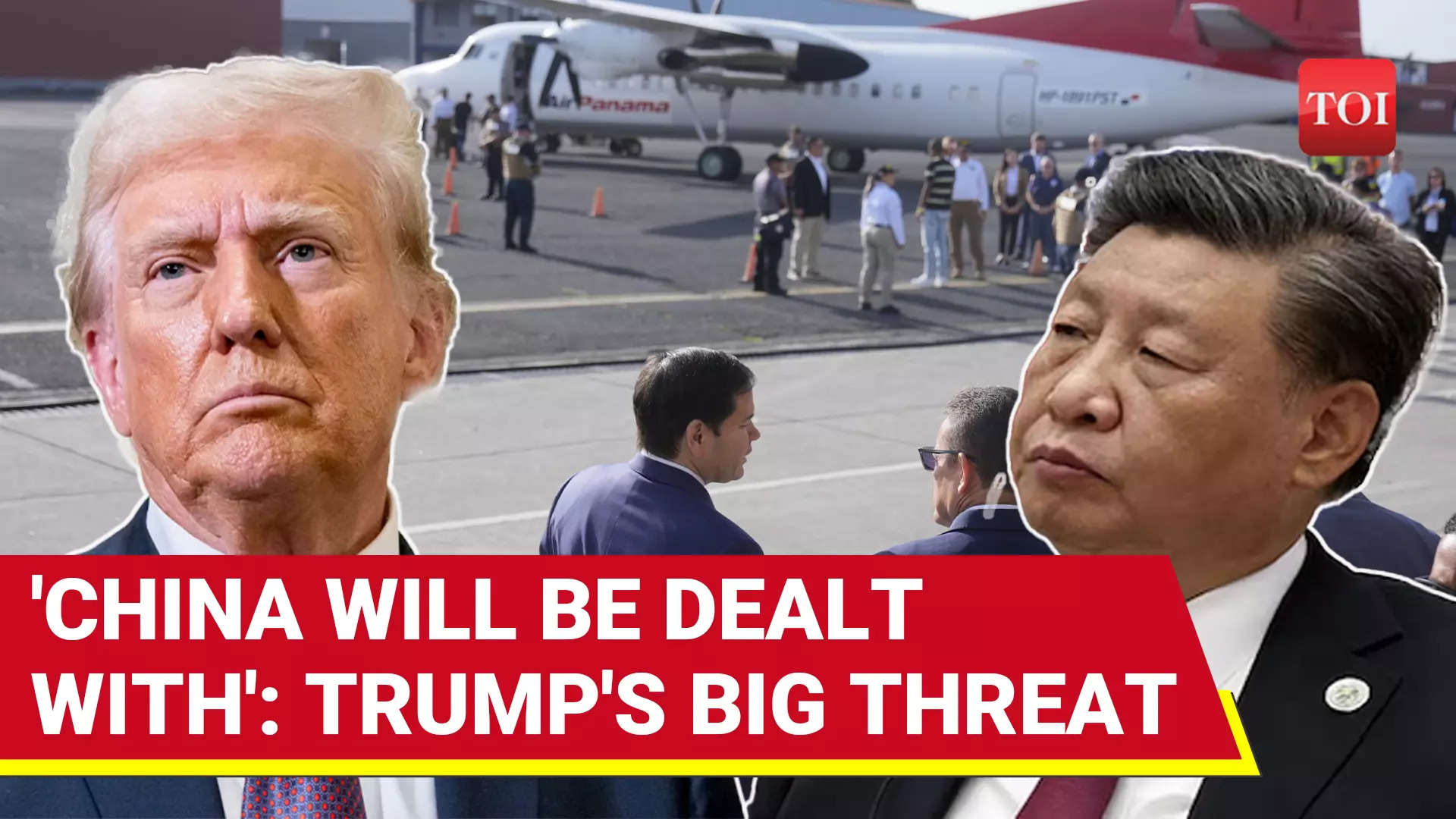 |
|
The recent statement by U.S. President Donald Trump regarding the Panama Canal has ignited a renewed tension in U.S.-China relations. Trump's assertion that previous U.S. administrations ‘foolishly’ relinquished control of the canal for a nominal sum has sparked considerable debate and analysis. His words, delivered from the Oval Office, carried the weight of a direct challenge, suggesting a potential shift in U.S. foreign policy towards China and Latin America. The phrasing – 'we gave it away for $1' – serves to underscore his perception of a significant national loss and a perceived weakness in past negotiations. This statement isn't merely a historical critique; it signals a potential new front in the ongoing trade and geopolitical conflict between the United States and China.
Trump's demand for either the return of the Panama Canal or 'something very strong' in return directly implicates China. This ambiguous threat leaves room for various interpretations, ranging from economic sanctions and diplomatic pressure to potentially more assertive actions. The lack of specificity adds to the uncertainty, prompting speculation about the potential scope and nature of any retaliatory measures. Analysts are scrutinizing the implications of such a bold declaration, considering its potential impact on regional stability, global trade routes, and the broader context of the escalating U.S.-China rivalry. The Panama Canal's strategic importance as a major shipping lane adds another layer of complexity to this geopolitical chess game. Any disruption to its operations would have far-reaching economic and political ramifications.
The timing of Trump's statement, coinciding with Senator Marco Rubio's visit to Panama, raises further questions. While Rubio's visit ostensibly focused on matters of immigration and deportation, the proximity to Trump's remarks suggests a potential coordinated effort or, at the very least, a confluence of events that underscores the administration's heightened focus on Panama and the region. The lack of detailed explanation surrounding the purported 'deportation' overseen by Rubio further fuels speculation. Was this part of a broader plan related to Trump's comments on the Canal? Did Rubio's activities in Panama help shape or inform Trump's subsequent statements? The connection, however subtle, highlights the intricate interplay between domestic and foreign policy in this particular instance.
It is crucial to analyze the historical context of the Panama Canal's transfer to Panama. The treaty transferring control wasn't a simple giveaway, but a complex negotiation that aimed to address historical injustices and promote Panamanian sovereignty. Understanding the intricacies of this agreement is critical to properly evaluating Trump’s characterization. While Trump's argument may resonate with some who view the transfer as a loss, it ignores the larger political and diplomatic factors that shaped this decision. The issue involves a complex history and raises questions regarding the legitimacy of challenging a long-standing international agreement. Ignoring these complexities risks provoking unintended consequences and further straining relationships with both Panama and other nations.
Ultimately, Trump's statement represents a significant escalation in rhetoric concerning China, but the actual course of action remains unclear. The ambiguous nature of his threat, coupled with the lack of concrete details, leaves room for both significant action and a mere display of political posturing. International observers are closely monitoring the situation to see whether this strong statement will translate into tangible policy changes or if it will remain a primarily symbolic gesture designed to garner domestic support. The response from China, Panama, and other stakeholders will be instrumental in determining the long-term consequences of this latest development in U.S.-China relations. The potential for miscalculation and escalation warrants careful attention and cautious analysis from all parties involved.
Source: Trump Starts New War With China? Fumes Over Panama Canal 'Ownership'
